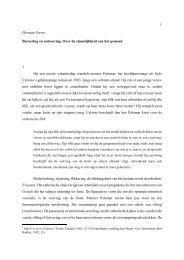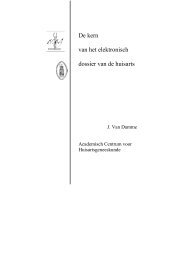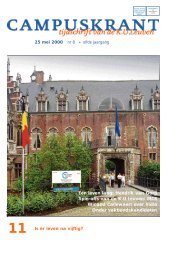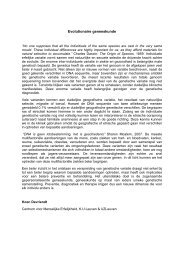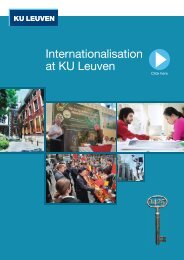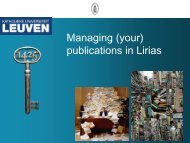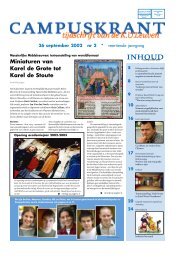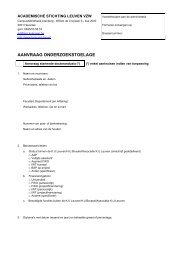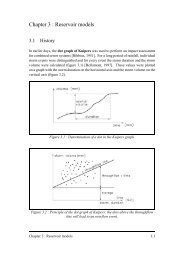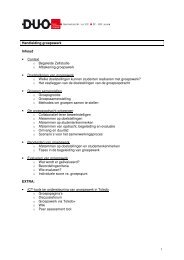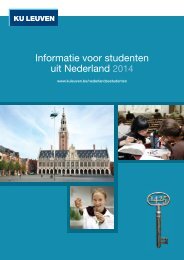EQUALITY GUIdE - KU Leuven
EQUALITY GUIdE - KU Leuven
EQUALITY GUIdE - KU Leuven
Create successful ePaper yourself
Turn your PDF publications into a flip-book with our unique Google optimized e-Paper software.
Chapter 5 ! Mentoring 247<br />
! Self-awareness (understanding oneself)<br />
Mentors need high self-awareness in order to recognize and manage their own behaviours<br />
within the mentoring relationship and to use empathy in an appropriate<br />
way. Interviews with mentors and mentees indicate that having some level of personality<br />
and motivational insight is useful for building rapport in the early stages of<br />
the relationship. “This is me ! this is you” is a good starting point for open behaviours.<br />
! Behavioural awareness (understanding others)<br />
Like self-awareness, understanding other people’s behaviour is a classic component<br />
of emotional intelligence. To help others manage their relationships, the mentor<br />
must have reasonably good insight into behaviour patterns between individuals and<br />
groups of people. Predicting the consequences of specific behaviours or courses of<br />
action is one of the many practical applications of this insight.<br />
! Business or professional savvy (insight-comprehension)<br />
The art of purposeful reflection is a valuable support in building this skill. By reviewing<br />
the learning from a variety of experiences, the mentor widens his or her range of<br />
templates and develops a sense of patterns in events. This competence is the ability<br />
to combine stretching experience with focused reflection ! either internally or in a<br />
dialogue with others ! and a substantial acquisition of judgement.<br />
! Sense of proportion/good humour<br />
Laughter, used appropriately, is very valuable in developing rapport, in helping<br />
people to see matters from a different perspective, in releasing emotional tension.<br />
It’s also important that mentor and mentee should enjoy the sessions they have<br />
together. Enthusiasm is far more closely associated with learning than boredom.<br />
! Communication competence<br />
Communication isn’t a single skill; it’s a combination of a number of skills. Those<br />
most important for mentors include:<br />
• listening ! opening the mind to what the mentee is saying, demonstrating interest<br />
and attention;<br />
• observing as receiver ! being open to the visual and other non-verbal signs,<br />
recognizing what is not said;<br />
• observing as projector ! being open to the visual and other non-verbal signals,<br />
as clues to what the mentee is hearing/understanding; adapting tone, volume,<br />
place and language appropriately;<br />
• exiting ! concluding a dialogue or segment of dialogue with clarity and alignment<br />
of understanding (ensuring the message is received in both directions).<br />
! Conceptual modelling<br />
Effective mentors have a portfolio of models they can draw upon to help the<br />
mentee understand the issues they face. These models can be self-generated (i.e.<br />
the result of personal experience), drawn from elsewhere (e.g. models of organizational<br />
structure, interpersonal behaviours, strategic planning, career planning) or



